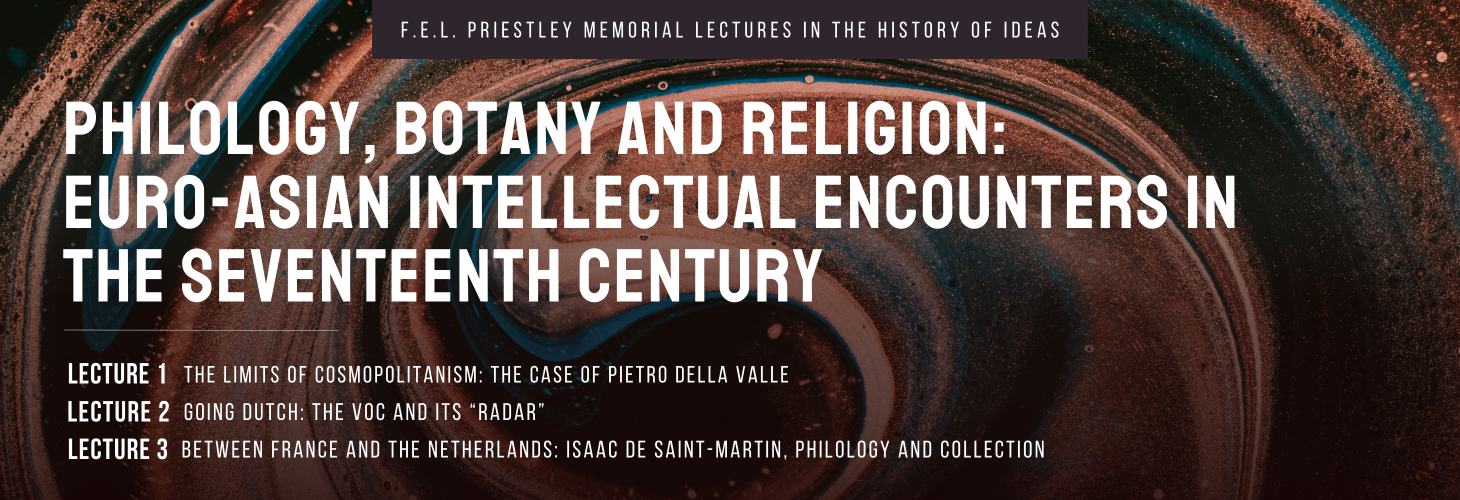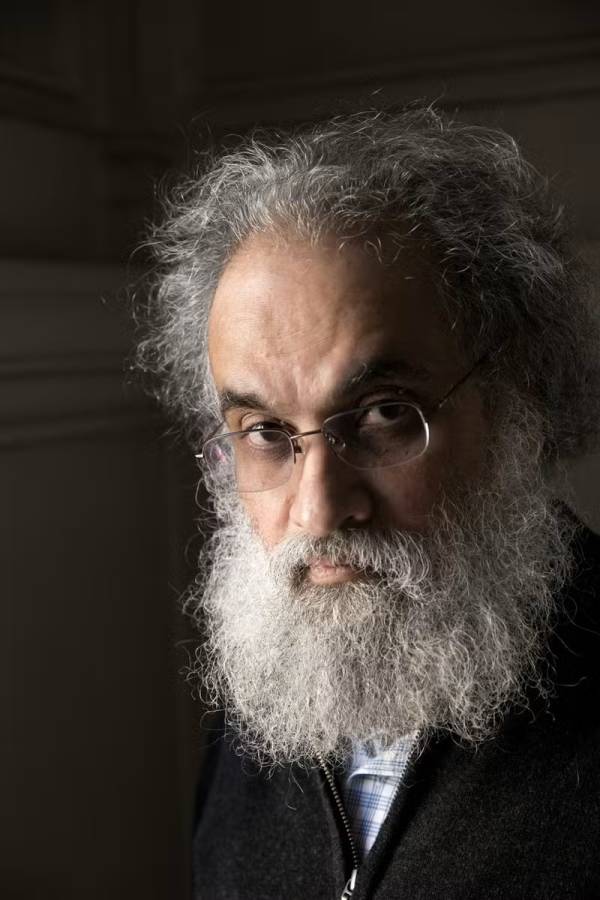
2025 F. E. L. Priestley Memorial Lectures in the History of Ideas
Philology, Botany and Religion: Euro-Asian Intellectual Encounters in the Seventeenth Century
Hybrid Lecture Series
March 18, 4:30-6:00 p.m., In person and online (followed by a reception)
March 19, 4:30-6:00 p.m., In person and online
March 20, 4:30-6:00 p.m., In person and online
Paul Cadario Conference Centre at Croft Chapter House
15 King’s College Circle, Toronto ON M5S 3H7
*Registration is required to view these lectures and seating is limited for in-person attendance. For in-person registrations, registering for one lecture will not grant a seat at the other lectures. Please submit an individual registration form for each guest who plans to attend and be sure to register for every day/lecture of interest.

Presented by
Sanjay Subrahmanyam
Distinguished Professor & Irving and Jean Stone Endowed Chair in Social Sciences
University of California, Los Angeles
The 2025 Priestley Memorial Lectures will explore different aspects of Euro-Asian intellectual encounters in the seventeenth century – a period during which a number of different European powers competed in the Asian arena. These included the Dutch, English, and French, who joined the Iberians who had established their presence in the sixteenth century. Their intellectual approaches to Asia involved a variety of concrete domains, including questions of language and philology, of tropical botany (both what were termed "drugs" and "simples"), and an ethnographical approach to religions as they encountered and redefined them.
Register for Virtual Attendance
To attend these lectures virtually please click the link below. A recurring webinar link will be sent to the email listed on the registration. Only one registration is needed to view all three days of lectures virtually. Please submit a registration under the name of each person who plans to attend.
To attend these lectures in person, please scroll down to the specific sections you would like to attend.
Lecture 1 - The Limits of Cosmopolitanism: The Case of Pietro della Valle
Tuesday March 18, 4:30 - 6:00 p.m.
Though they had been active already in the medieval period, the Italians were not amongst those who approached Asia collectively in the early modern epoch. However, a number of individuals came to Asia, driven by personal ambition. Amongst these was the aristocratic Pietro della Valle (d. 1652), who produced a celebrated and deliberately heroic account of his own travels. The first lecture considers Della Valle and his explorations in the domains of philology and science, including geography, as well as his peculiar liking for religious polemics.
Lecture 2 - Going Dutch: The VOC and its “radar”
Wednesday March 19, 4:30 - 6:00 p.m.
In the second lecture, we will explore the United Dutch East India Company (or VOC), founded in 1602, which arguably became the dominant player among the European powers in seventeenth-century Asia. Peeling away the layers of myth concerning the Dutch as simple merchants who pursued profit, we will consider them instead as cultural actors with a bent for violent intervention, but also a particular attraction for the sphere of visual representation of other cultures. This turns out however to be more problematic than the celebrated phrase “the art of describing” might have us believe.
Lecture 3 - Between France and the Netherlands: Isaac de Saint-Martin, Philology and Collection
Thursday March 20, 4:30 - 6:00 p.m.
Each of the “national” European entities in early modern Asia was in fact trans-national in character. The Dutch thus employed a number of French mercenaries, amongst whom we find the intriguing figure of Isaac de l’Ostal (de Saint-Martin), a shadowy character from the Pyrenees who managed to rise to great heights within the VOC while never attaining the prominence of men like Hendrik Adriaan van Rheede. Saint-Martin was part of a network of philologists and collectors, who also participated in their own way in the early stirrings of the Radical Enlightenment.
About the Speaker
Sanjay Subrahmanyam is Distinguished Professor of History and Irving & Jean Stone Chair in Social Sciences at UCLA. A specialist of the early modern period (15th-18th centuries), he is the author of numerous books, essays, and edited volumes, ranging between studies of India and the Indian Ocean, the early modern European empires, and reflections on global history as a field of research.
The F.E.L. Priestley Lectures in the History of Ideas have been funded by a number of Professor Priestley's former students. The F.E.L. Priestley Lectures reflects Professor Priestley's broad interest in the history of ideas and his dedication to teaching and scholarship.